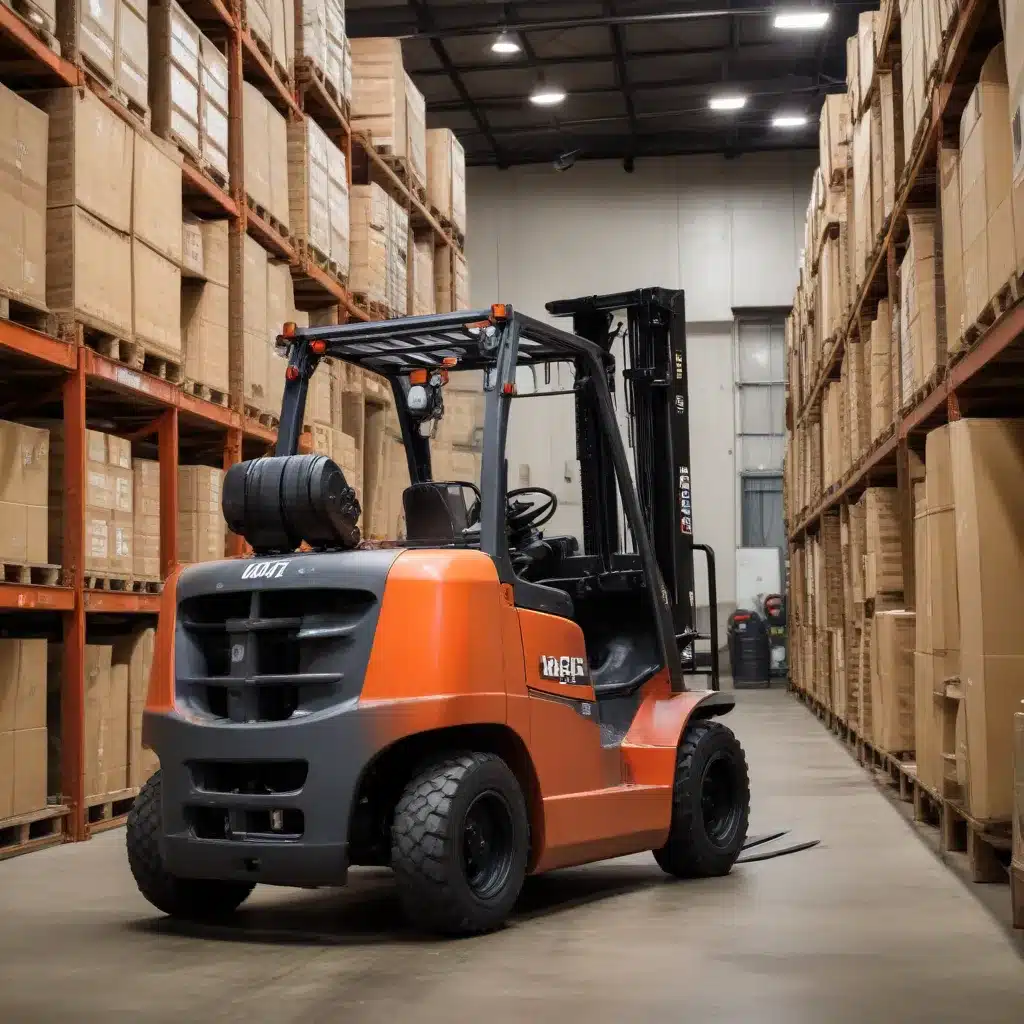
The Vital Role of Forklift Maintenance in Optimizing Warehouse Operations
Forklifts are the backbone of efficient warehouse operations, enabling the seamless movement and handling of heavy loads. However, to ensure these powerful machines continue to operate at peak performance, a comprehensive forklift maintenance program is essential. By prioritizing regular forklift maintenance, warehouse managers can significantly reduce downtime costs, enhance safety, and optimize overall productivity.
Understanding the Impact of Forklift Maintenance on Warehouse Efficiency
Forklifts are subjected to intense and prolonged use in the demanding warehouse environment. Without proper maintenance, these hardworking machines are prone to breakdowns, malfunctions, and safety issues, leading to costly disruptions in operations. Downtime resulting from forklift failures can result in delayed shipments, decreased productivity, and increased labor and repair expenses.
The key costs associated with forklift downtime include:
- Repair and replacement parts
- Labor costs for maintenance and repairs
- Delayed material handling tasks and reduced productivity
- Potential regulatory fines for safety violations
- Indirect costs from lost business opportunities and customer dissatisfaction
By implementing a proactive forklift maintenance program, warehouse managers can mitigate these downtime costs and maintain efficient, cost-effective operations. Regular inspections, preventive maintenance, and timely repairs help identify and address potential issues before they escalate, minimizing the risk of unexpected breakdowns.
The Fundamentals of a Comprehensive Forklift Maintenance Program
A well-designed forklift maintenance program should encompass a range of essential tasks and procedures to ensure the optimal performance and longevity of your forklift fleet. Here are the key components of an effective forklift maintenance program:
1. Scheduled Inspections and Preventive Maintenance
Establishing a regular inspection and preventive maintenance schedule is the foundation of a comprehensive forklift maintenance program. This typically includes:
- Daily Pre-Shift Inspections: Operators should conduct a thorough inspection of the forklift before each shift, checking for any visible damage, fluid leaks, or safety concerns.
- Monthly Comprehensive Inspections: A more detailed inspection performed by a qualified technician, covering critical components such as tires, brakes, hydraulic systems, and electrical systems.
- Scheduled Maintenance Tasks: Regular servicing and replacement of parts like oil, filters, belts, and batteries, as per the manufacturer’s recommendations.
By adhering to these scheduled inspection and maintenance routines, warehouse managers can identify and address potential issues early, minimizing the risk of unexpected breakdowns.
2. Proper Forklift Operator Training
Ensuring that forklift operators are properly trained and certified is crucial for the success of any forklift maintenance program. Trained operators are better equipped to identify potential problems, perform daily inspections, and operate the forklifts safely, reducing the risk of accidents and damage.
Operator training should cover topics such as:
- Forklift operation techniques
- Load handling and load distribution
- Maneuvering in tight spaces
- Pre-shift inspection procedures
- Maintenance and reporting protocols
Providing ongoing training and refresher courses can help maintain a high level of operator competence and engagement in the maintenance program.
3. Maintenance Record-Keeping and Data Analysis
Detailed record-keeping is essential for an effective forklift maintenance program. Maintaining comprehensive maintenance logs, including inspection reports, repair histories, and replacement parts, can help warehouse managers track the performance of individual forklifts and identify patterns or recurring issues.
Analyzing this data can provide valuable insights, enabling informed decision-making regarding maintenance schedules, equipment upgrades, and fleet management. This data-driven approach can help optimize maintenance efforts, reduce costs, and ensure the long-term reliability of the forklift fleet.
4. Outsourcing Maintenance to Specialized Providers
While some basic maintenance tasks can be performed by in-house personnel, it is often beneficial to partner with a specialized forklift maintenance provider. These professionals have the expertise, tools, and resources to ensure that maintenance is carried out correctly and efficiently, in accordance with manufacturer guidelines and industry best practices.
Outsourcing forklift maintenance can offer several advantages, including:
- Access to specialized knowledge and experience
- Consistent maintenance scheduling and record-keeping
- Reduced downtime and improved equipment reliability
- Compliance with safety regulations and standards
- Cost-effective maintenance solutions
By leveraging the expertise of a specialized maintenance provider, warehouse managers can focus on their core operations while ensuring the optimal performance and longevity of their forklift fleet.
Partnering with HCO Innovations for Comprehensive Forklift Maintenance Solutions
Implementing and maintaining a comprehensive forklift maintenance program can be a complex and time-consuming task. That’s where HCO Innovations comes in, offering turnkey forklift maintenance solutions tailored to the unique needs of warehouse operations.
HCO Innovations’ team of experienced technicians provides a wide range of forklift maintenance services, including:
- Scheduled preventive maintenance inspections
- Emergency repair services
- Battery and fuel system maintenance
- Operator training and certification
- Maintenance record-keeping and data analysis
By partnering with HCO Innovations, warehouse managers can ensure that their forklift fleet is well-maintained, operating at peak performance, and compliant with safety standards. This, in turn, helps minimize downtime costs, improve efficiency, and enhance overall warehouse productivity.
Conclusion
Maintaining a comprehensive forklift maintenance program is essential for warehouse operations seeking to optimize efficiency, reduce costs, and ensure the safety of their workforce. By implementing scheduled inspections, preventive maintenance, operator training, and partnering with specialized service providers, warehouse managers can keep their forklift fleet in top condition and minimize the disruptive impact of unexpected breakdowns.
Leveraging the expertise of a trusted partner like HCO Innovations can further streamline the forklift maintenance process, providing a turnkey solution that addresses the unique needs of your warehouse operations. With a proactive approach to forklift maintenance, you can maintain a reliable and efficient material handling system, driving the success of your warehouse operations.

